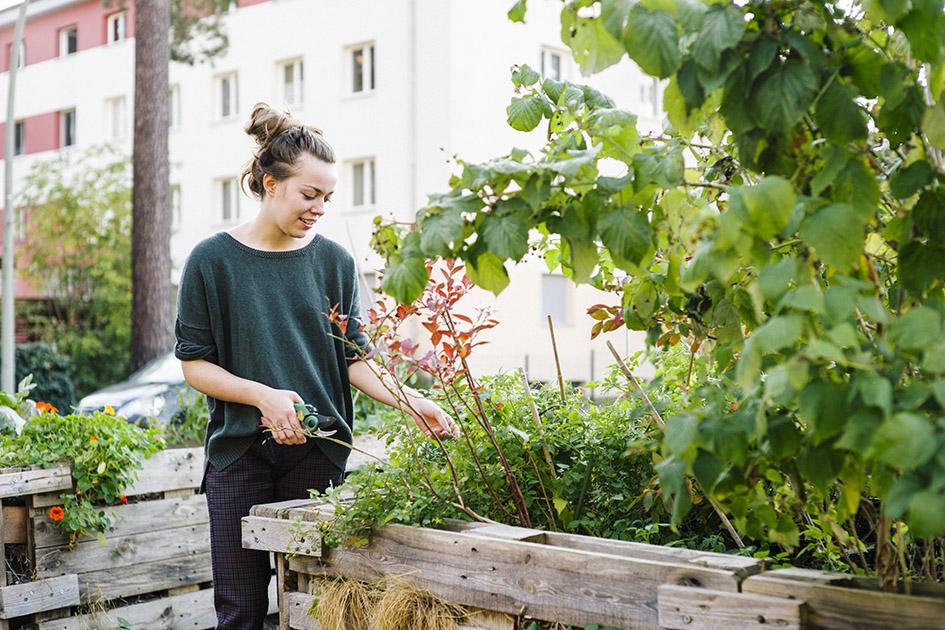Topics
Well-BeingConsumptionLifestyles
The over-exploitation of natural resources driven by exponential (un-)economic growth cannot be solved by technology alone. New patterns of consumption and social innovations that decouple well-being and quality of life from environmental degradation are required.
Private consumers cause a significant share of the impacts on climate change and resource use. This is especially true in Western societies, but the diffusion of those lifestyles to rapidly emerging economies and cities is exacerbating the situation. Yet decisions on consumption are driven by more than just individual preferences. Infrastructures impact the demand for living space and the use of different modes of transportation. Prices, subsidies, efficiency gains and tax benefits are key determinants of the willingness to invest in sustainable products. The features and availability of sustainable products and services are key in convincing consumers to actually use them.

Twin Decoupling
The transition towards sustainable development needs more than technological solutions and new business models. It is invariably connected to the models of well-being and wealth in modern industrial societies. Despite all the successes in improving energy and resource efficiency, the global ecological challenges are mounting.
What is required is "twin decoupling": Not only does environmental degradation need to be decoupled from economic performance as measured by GDP (eco-efficiency), but also our future well-being from GDP (sufficiency). New concepts of well-being have their starting point here. Nationally and internationally, this debate is well-established. Even the OECD measures well-being using a set of eleven indicators, many capturing environmental and social aspects. The Wuppertal Institute searches for new indicators of well-being and sufficiency strategies.
New Well-Being and Lifestyle
Cities and city quarters have become central venues for experimenting with new models of well-being. Movements like transition towns, urban gardening, new mobility, new models of shared housing are all developed in urban areas. The Wuppertal Institute is reviewing such models of urban well-being and actively supports them, also in its home town of Wuppertal. The Institute looks also into new urban well-being for entire cities, creating new indicators of well-being and proposals for "business development 4.0".
Sustainable lifestyles and models of well-being need policies and business models that enable them to flourish. With the idea of "politics of sufficiency", the Wuppertal Institute has drafted a proposal on how to systemically look at policy options and best practices for sufficiency.

Our daily consumption decisions matter – be that in our routines, our homes, at our jobs or in our free time. They influence the values and attitudes of our society, corporations and policy, the orientation of our markets, and the shape of our surroundings, be that wittingly or unwittingly. Change requires teamwork – shaping is a skill that must be mastered.
Topics
Read more on the topic of sufficiency as a sustainability strategy here:
News
Here you find up-to-date information on research findings and activities in the field of consumption and life styles.
News on the topic

Green financing: A Catalyst for Sustainable Energy Transition in Rural China
Flagship report on green financing in China and Europe published

Smart Energy Solutions for Africa
The SESA project published the "Sustainable Energy Solutions Catalogue"

Top 10 Publications of 2023
The ten best peer-reviewed publications of the Wuppertal Institute of the past year
Publi-cations
You find all scientific publications on our publication server:
Projects
Analyses and experiments help to investigate consumption patterns, social innovations and their ecological relevance. In the following you find selected sample projects. A complete list is available here.
